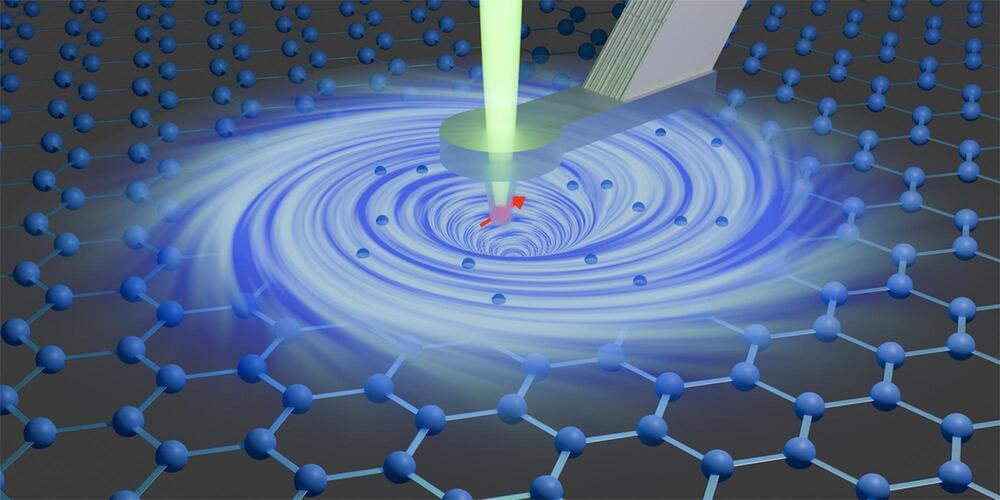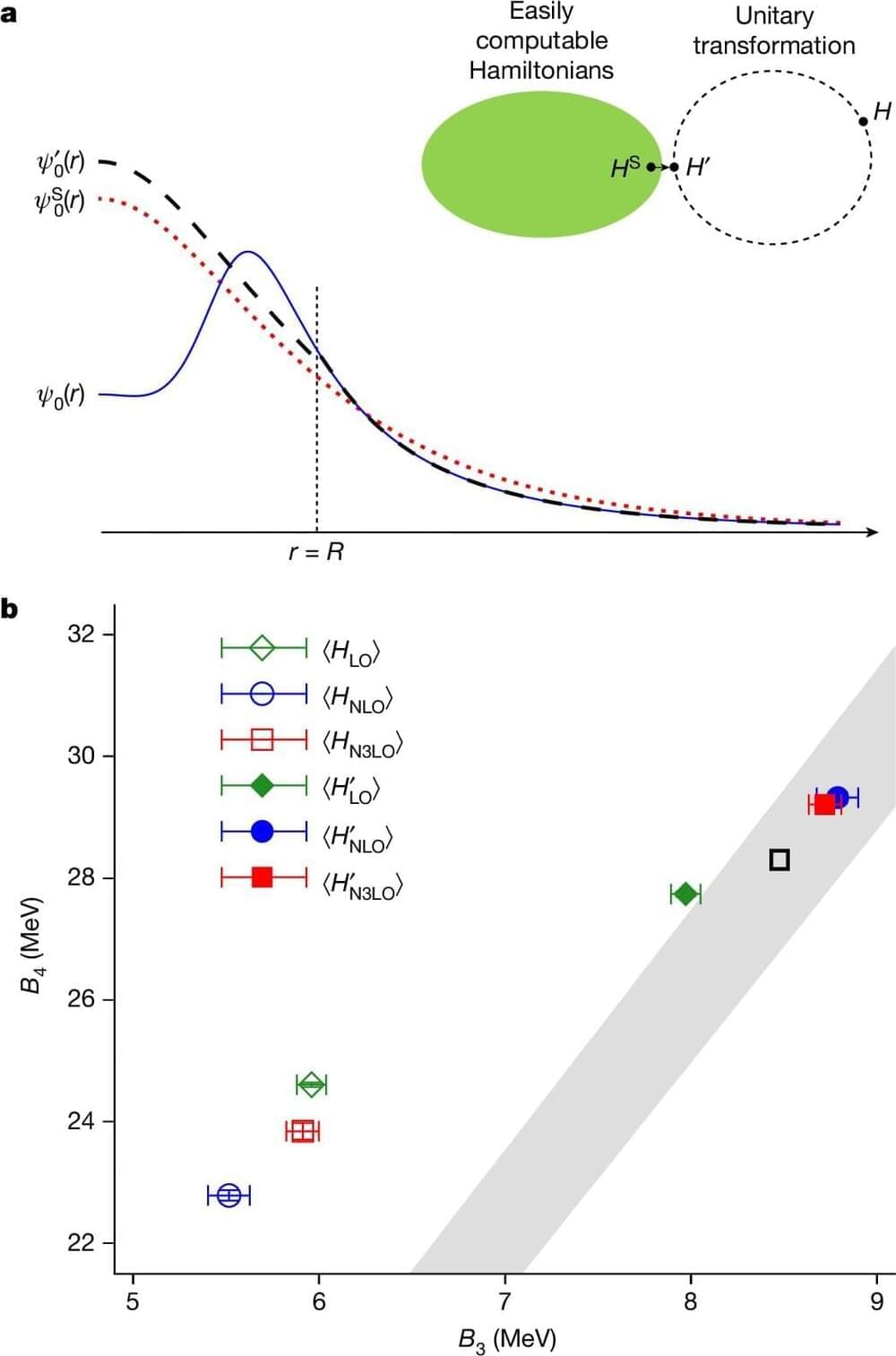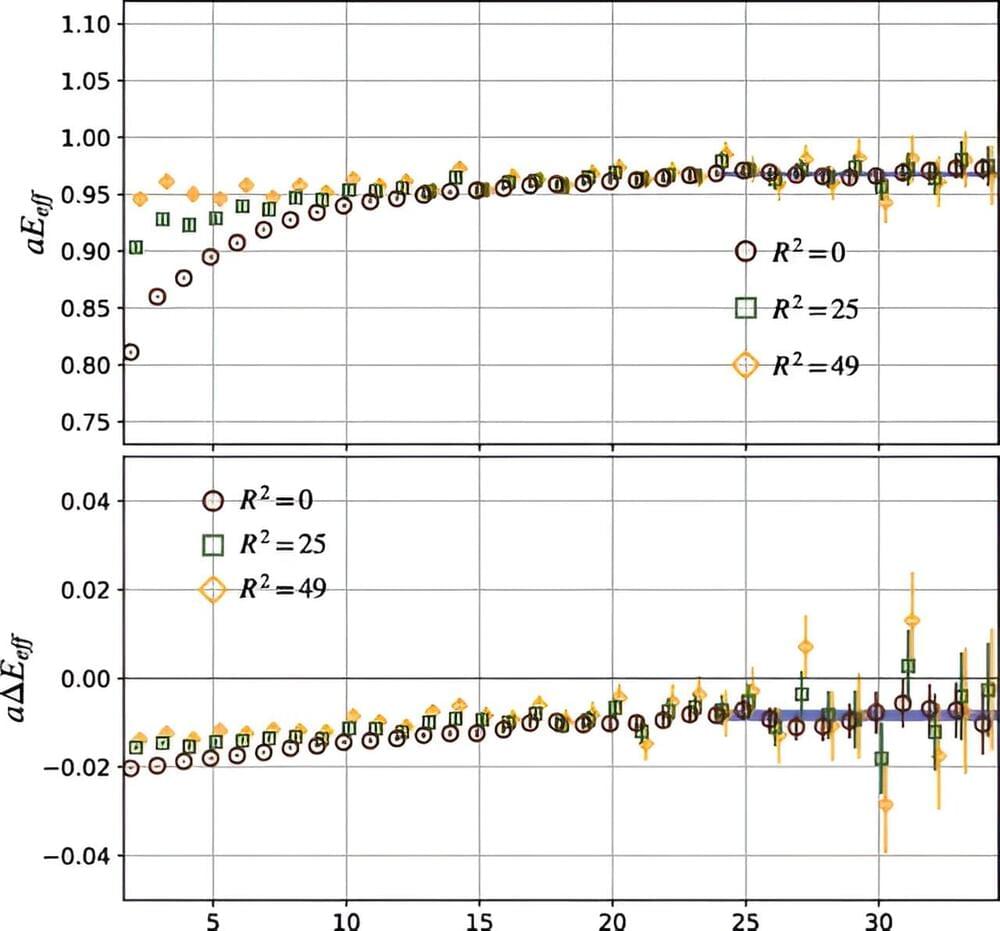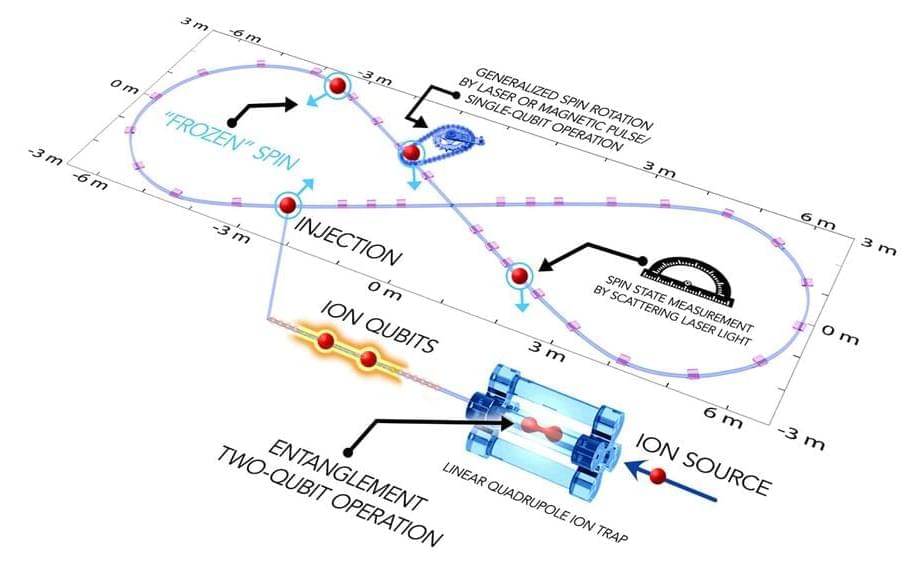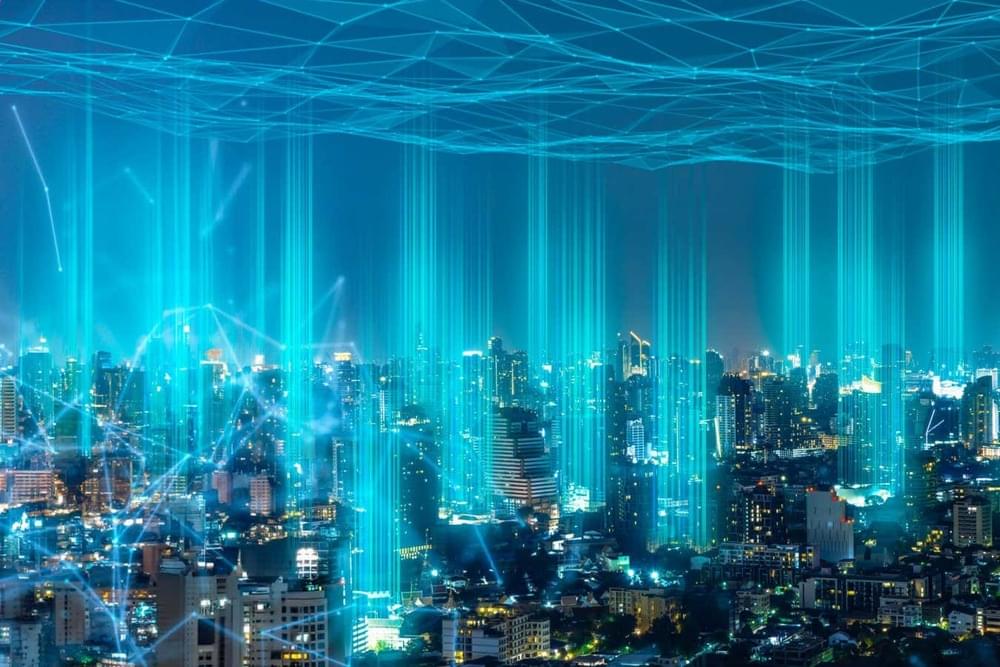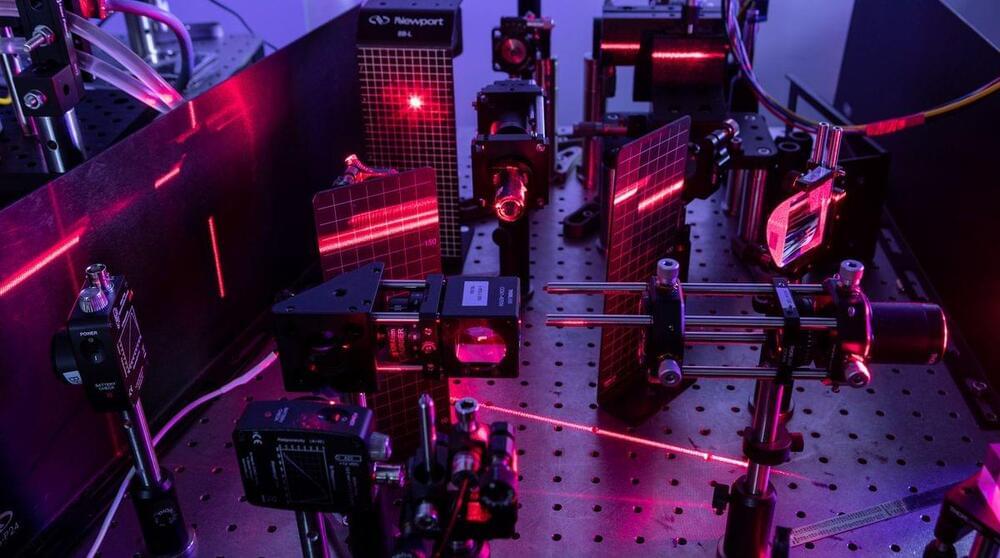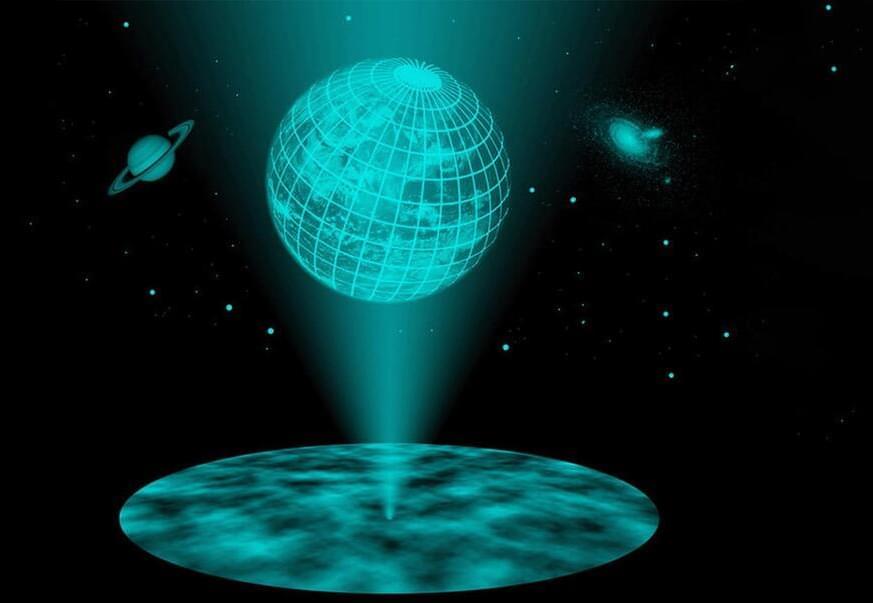Scientists engineer the ‘purest ever silicon’ to build reliable qubits that can be manufactured to the size of a pinhead on a chip and power million-qubit quantum computers in the future.
Category: quantum physics – Page 215
Quantum spherical codes
Posted in computing, quantum physics
A new concept called quantum spherical codes could make the notoriously fragile information in a photon-based quantum computer less susceptible to errors.
Many recent experiments have stored quantum information in bosonic modes, such as photons in resonators or optical fibres. Now an adaptation of the classical spherical codes provides a framework for designing quantum error correcting codes for these platforms.
Researchers at ETH Zurich have, for the first time, made visible how electrons form vortices in a material at room temperature. Their experiment used a quantum sensing microscope with an extremely high resolution. In graphene, electrons behave like a liquid, which can lead to the formation of v.
Strongly interacting systems play an important role in quantum physics and quantum chemistry. Stochastic methods such as Monte Carlo simulations are a proven method for investigating such systems. However, these methods reach their limits when so-called sign oscillations occur.
This problem has now been solved by an international team of researchers from Germany, Turkey, the U.S., China, South Korea and France using the new method of wavefunction matching. As an example, the masses and radii of all nuclei up to mass number 50 were calculated using this method. The results agree with the measurements, the researchers now report in the journal Nature.
All matter on Earth consists of tiny particles known as atoms. Each atom contains even smaller particles: protons, neutrons and electrons. Each of these particles follows the rules of quantum mechanics. Quantum mechanics forms the basis of quantum many-body theory, which describes systems with many particles, such as atomic nuclei.
Exploring the complex domain of subatomic particles, researchers at the The Institute of Mathematical Science (IMSc) and the Tata Institute of Fundamental Research (TIFR) have recently published a novel finding in the journal Physical Review Letters. Their study illuminates a new horizon within quantum chromodynamics (QCD), shedding light on exotic subatomic particles and pushing the boundaries of our understanding of the strong force.
Deep in outer space, invisible hands mold the universe. One is dark matter, an unseen substance thought to bind distant galaxies. The other is dark energy, a force believed to push stellar structures apart with gravity-defying strength.
Researchers aiming to create a secure quantum version of the internet need a device called a quantum repeater, which doesn’t yet exist — but now two teams say they are well on the way to building one.
By Alex Wilkins
The desktop-sized LPU100 eschews traditional electronics and qubits in favor of lasers, and it can reportedly perform complex AI calculations in nanoseconds.
Close friend and coworker Thomas Hertog explores the groundbreaking physicist’s theories regarding the Big Bang’s beginnings on this, the sixth anniversary of Stephen Hawking’s passing.
I was appointed as Stephen Hawking’s PhD student in 1998 “to work on a quantum theory of the Big Bang.” Over the course of about 20 years, what began as a doctoral project evolved into a close collaboration that came to an end only six years ago, on March 14, 2018, when he passed away.
The mystery that drove our investigation during this time was how the Big Bang could have produced conditions that were so ideal for life. How should we interpret this enigmatic display of intent?
It’s one thing to dream up a quantum internet that could send hacker-proof information around the world via photons superimposed in different quantum states. It’s quite another to physically show it’s possible.

